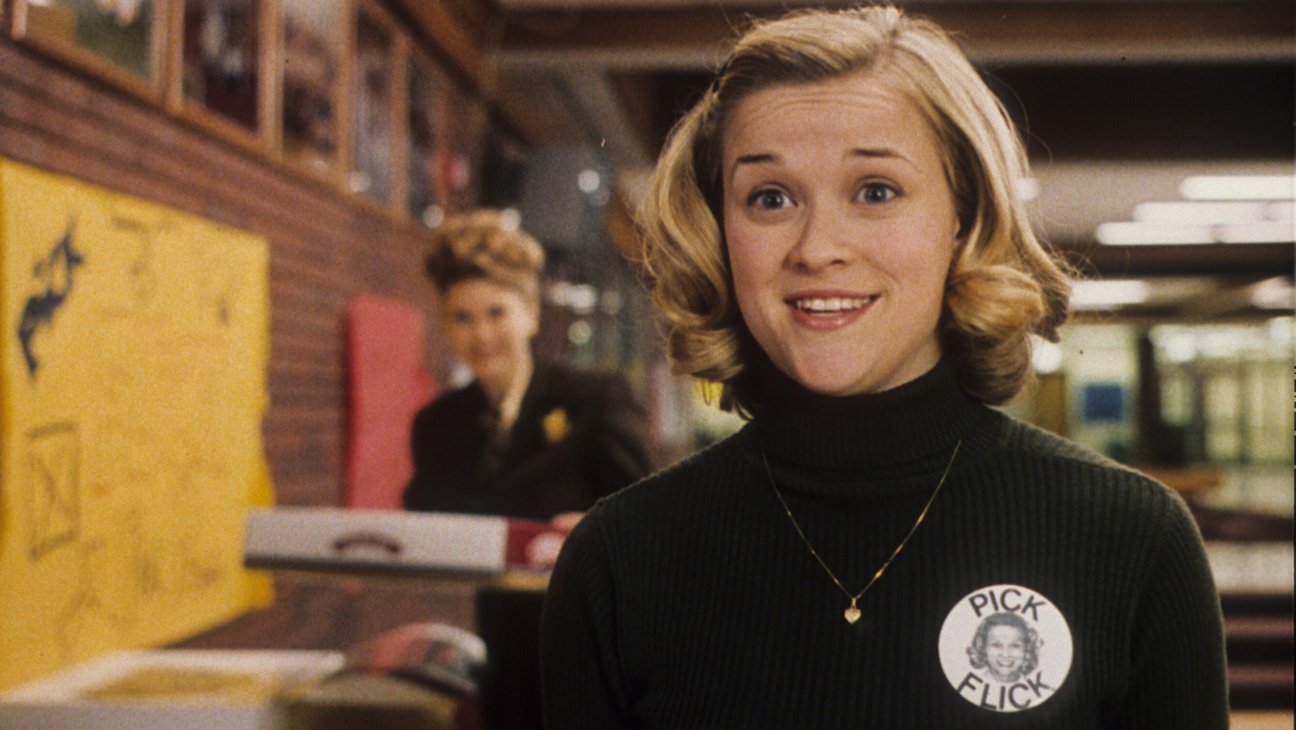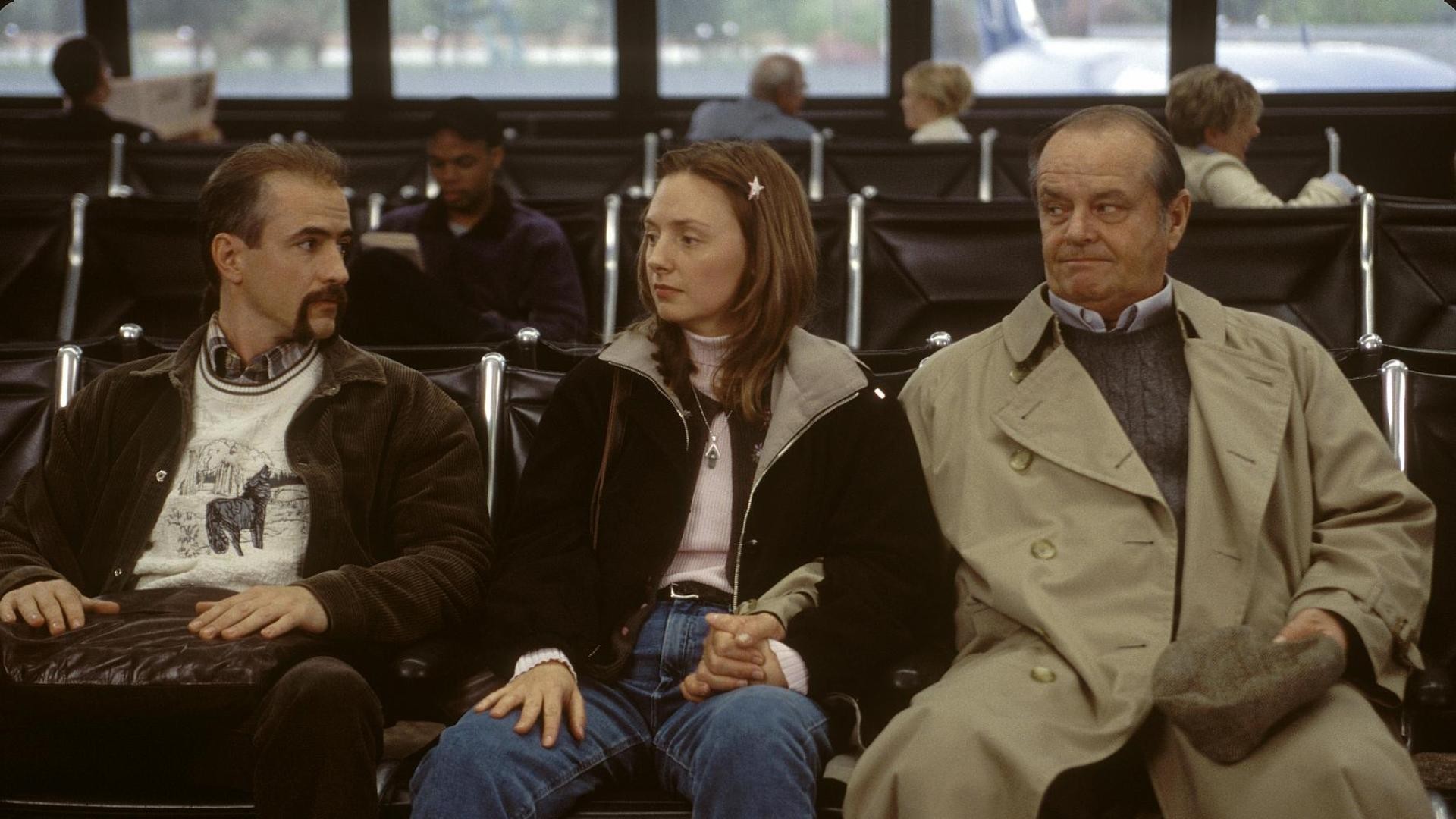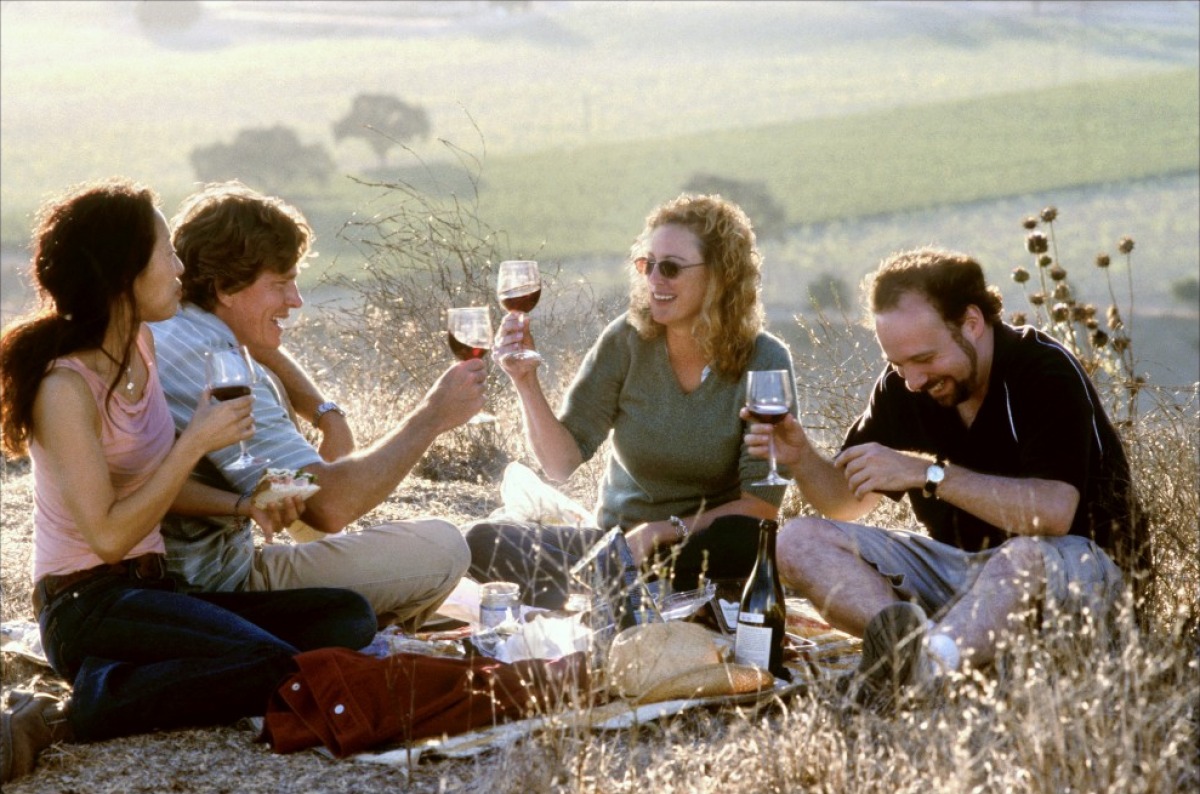4. The Holdovers (2023)

After a six-year hiatus from the big screen, Alexander Payne returned with a familiar but indelibly satisfying picture. A wide release in November is fitting, as “The Holdovers” evokes the comfort food quality of a Thanksgiving dinner. Making this meal even more savory, the 2023 film is a reunion of Payne and “Sideways” star Paul Giamatti. The star perfectly embodied the director’s voice and cinematic language in 2004, and with their recent film, the tight-knit relationship is beautifully flourished in this heartwarming dramedy that is just acerbic enough for Payne and his devoted fans.
“The Holdovers” follows a curmudgeonly history teacher, Paul Hunham (Giamatti) at a boarding prep school who is tasked to watch over a troubled student, Angus (Dominic Sessa, in his screen debut), during the holidays, as he has nowhere to go during winter break. Just like “Nebraska,” this film was not written by Payne, but rather, a career television writer, David Hemingson. Unlike “Nebraska,” the slight tonal shift and looser comedic timing clearly show that Payne is working with someone else’s material. “The Holdovers” is the director’s most earnest and directly heartwarming work.
Without any showy subversions, the film is indebted to a familiar story archetype: the cranky middle-aged/old man softening through his experiences with younger and more lively spirits. The Payne difference is that “The Holdovers” is classical, not cliched; wholesome and tender, but not maudlin. The mantra surrounding the film is that it is symbolic of the kind of film that Hollywood “doesn’t make anymore.” Under Payne’s careful direction and the heartfelt performances by Giamatti, Sessa, and Da’Vine Joy Randolph, “The Holdovers” feels effortless in its charm.
Giamatti gives a funny, melancholic, and sympathetic performance that rivals his exceptional work in “Sideways.” Paul acts as a spiritual successor to Miles, the depressed and scornful wine connoisseur. Payne’s direction allows Giamatti to be the heart and soul of the narrative, with the tonal ebb and flow of his character’s respective stubbornness and growth. The steadfast recreation of a 1970s visual aesthetic begins a bit awkwardly, but once the narrative shifts into full gear, the film oozes with warmth and genuinely takes on the likeness of a Hal Ashby hangout flick. In terms of its thematic ambitions, “The Holdovers” is not as aggressively poignant about the fears of aging and the naturalistically punishing nature of life as Payne’s golden age runs from 1999-2004. The film arguably exists more as an experiment in recreating the vibe of ‘70s cinema, but it is hard to deny the everlasting heart of “The Holdovers.”
3. Election (1999)

In 1999, when “Election” premiered, general audiences were likely shocked by this kind of acidic tone and shrewd political satire coming from a familiar teen/high school comedy produced by MTV. Its characters existed in a world that seemed foreign to the public’s conception of high school on the big screen. Not only did the emotional woes and insecurities of teachers and students blend, but they also appeared to comment on a broader topic surrounding the degradation of public office and democracy at large. This is what Alexander Payne is all about, and audiences immediately recognized him as one of the finest auteurs ever since.
Payne’s breakout film centers around an election for class president at a high school in Nebraska, which pits ambitious overachiever Tracy Flick (Reese Witherspoon) against the dispirited history teacher, Jim McAllister (Matthew Broderick), who attempts to undermine her campaign, as her excellence has grown to annoy him. The visual language of “Election” is not what one would expect from a Payne film. The flashbacks, multiple voiceovers, freeze frames, and other formalist tricks are very much inspired by the French New Wave and Martin Scorsese.
More than anything else in his filmography, “Election” proves the director’s chops as a stylistic filmmaker, where his comedic sensibilities are transferred with his camera work and editing. Witherspoon is a shining star in a performance that is canonical to Payne’s protagonist. She is in one moment grating and vain, then sympathetic and gravely misunderstood in another moment. The casting of Broderick, once the titular cool rebel in “Ferris Bueller’s Day Off,” is ingenious, as Jim is the evolution of what actually happens to kids like Ferris in their post-high school glory.
Generally speaking, satire in film is a dicey endeavor. The range of excellence ranges from cinematic brilliance to condescending trash, with not much in between. The satirical text in “Election” is sharp, biting, and prescient. Distilling the machinations of politics into a frivolous student body election is executed with such graciousness. Payne shines a light on the nefariousness of the political system through the backdrop of high school–an already toxic environment for teens. The phenomenon behind public perception versus the demystified reality of respective figures such as Tracy and Jim is an essential trait of election season. 1999 is retroactively celebrated as a last hurrah for esoteric filmmaking on a premiere stage, and “Election” is the perfect film of the moment, dissecting the problems of today while reflecting on the fabric of America and prophesying the bleak fate of socio-political affairs.
2. About Schmidt (2002)

Following up his acerbic political satire, “Election,” Alexander Payne raised his profile as one of the most humanist directors working and cemented his thematic style that would define his filmography. With “About Schmidt,” Payne gave legendary actor Jack Nicholson a career capstone. In perhaps the actor’s finest performance ever, Nicholson wrestles with the harsh realities of aging, regret, and redemption–all realized through Payne’s distinct tone and affinity towards men partaking in aimless vacations.
“About Schmidt” follows Warren Schmidt (Nicholson), a recently retired business executive who, following the unexpected death of his wife, embarks on a cross-country journey to his daughter’s wedding, hoping to convince her to break off from her marriage. While it is an alluring role that deploys an innate humanism, Nicholson’s performance is the anti-Nicholson performance. He is restrained–ready to burst with rage or sadness at any moment.
It does not feel like a purposefully showy act on the actor’s part. Rather, it beautifully captures the sense of fleeing memories and loneliness at an old age. He eloquently plays a man who, once he recognizes the general void in his life, is forced to confront his guilt and disdain for his daughter’s fiancee. Where most films present this form of elderly reflection as a source of positive life affirmation for the protagonist, “About Schmidt” shows the titular character as aimless in his purpose.
If “Election” was bleak about the state of American politics, “About Schmidt” is bleak about the state of livelihood in one’s swan song years. Yet, since this is a Payne film, it is never rigidly a comedy or drama at any given moment, extracting pathos in benign situations and humor in remorseful scenarios. The amorphous nature of the tone perfectly undercuts the norms of road trip movies. Warren is not revitalized by this trip to see his daughter’s wedding, nor does he partake in it to escape his mundane life. Instead, he is a lost spirit without any support or proper home.
“About Schmidt” could have easily baited Payne to lean into saccharine emotions and rudimentary character evolutions, but the unknowable quality of Warren and his omnipresent pessimism unraveling throughout the film leaves the viewer regularly challenged. Payne’s direction refuses to alienate or validate Warren’s worldview. The director probes the audience to consider that they may be in his shoes at some point. “About Schmidt” is a remarkable achievement. Payne’s minimalist storytelling plunges the viewer into the fractured soul of a protagonist played by one of America’s most beloved stars.
1. Sideways (2004)

It is very fitting that Alexander Payne’s masterpiece, the film that will forever be associated with him, is one equal parts hilarious and downbeat. It depicts two deplorable friends, yet, it is impossible to deny their charm or sympathetic angst. “Sideways,” which earned Payne and his frequent writing partner, Jim Taylor, their first Academy Award, is the complete realization of the director’s desire to revive the cinema of the 1970s. Similar to the one taken by its two protagonists, the film is a pleasant trip to wine country, a punishing reflection on life, and a bad hangover all at once.
“Sideways” chronicles a week-long bachelor trip through California’s wine country between Miles (Paul Giamatti), a recently divorced teacher and struggling writer, and Jack (Thomas Haden Church), a soon-to-be-married actor. First and foremost, the chemistry between Giamatti and Church is one of the best to grace the big screen in recent memory. Their rapport is the anchor of “Sideways.” Their similarities, differences, kinship, and quarrels are grounded while being thoroughly riveting.
The visual grain and blend of naturalism and formalism help complement the ‘70s aesthetic that Payne has been striving for throughout his career. Remarking that a film “has its cake and eats it too” is generally understood as a criticism. In the case of “Sideways,” the film is an entertaining hangout movie while actively subverting the expectations of a road trip comedy. The characters are punished immensely for their disobedience, and the integrity of their trip is frequently undermined by the lackluster enthusiasm of the trip itself.
Payne has made a name for himself as the premiere filmmaker for dissecting the melancholia of middle-aged men and atoning for their mistakes and guilt. Engaging self-destructive men such as Miles and Jack as wholly sympathetic figures is sure to cause a collective groan among audiences, but Payne’s delicacy in exposing the buffoonery of the two while maintaining a gravitas sense of their humanity is a truly brilliant stroke of filmmaking. Payne’s identification of the milieu of wine culture as a home for neurotic insecurities covered by the veneer of sophistication is incredible foresight.
“Sideways” represents an inflection point in Payne’s filmography, where he was no longer reliant on pure cynicism. He found a way to evolve, growing as a director interested in why human beings become dispirited. Having said that, he carried over his sharp wit and unrelenting streaks of sadness. Furthermore, Payne’s direction is daring in its inclination for absurdist moments of slapstick, which is seamlessly mixed in with his smart characterization and witty dialogue. “Sideways” is the complete package for Payne and as a film entirely. The film has such a pronounced vigor, especially coming from a dramedy about middle age about wine connoisseurs.